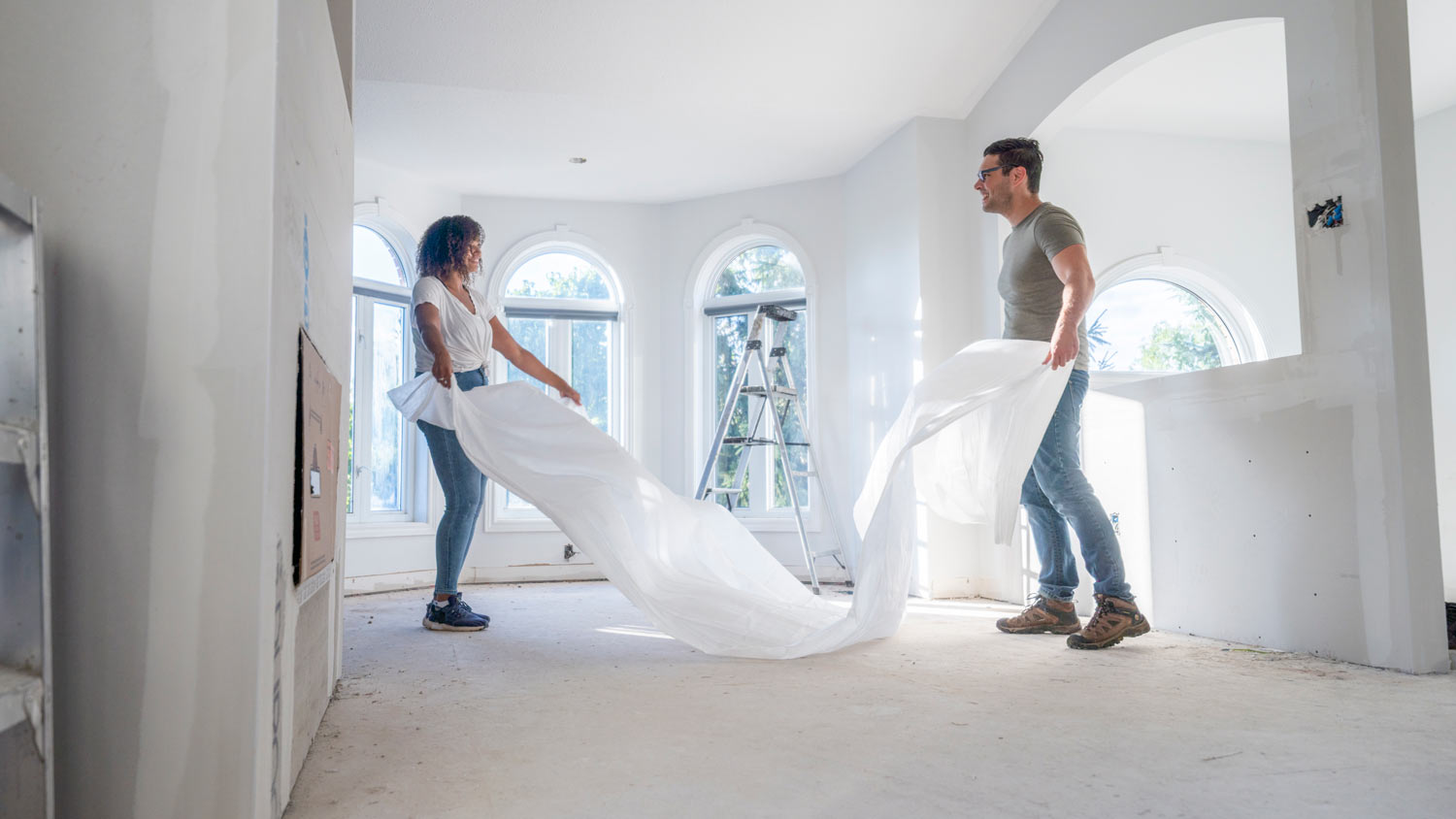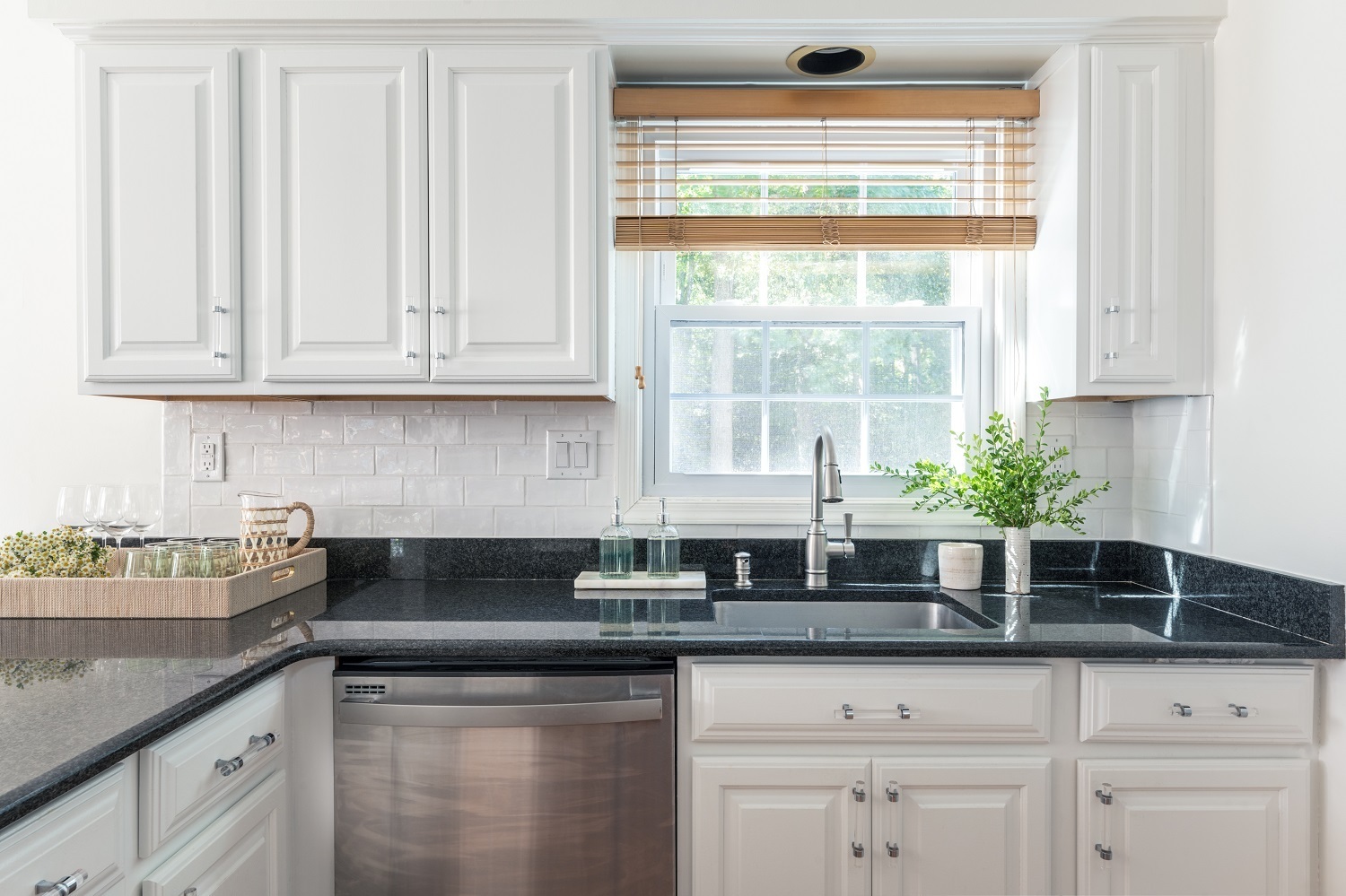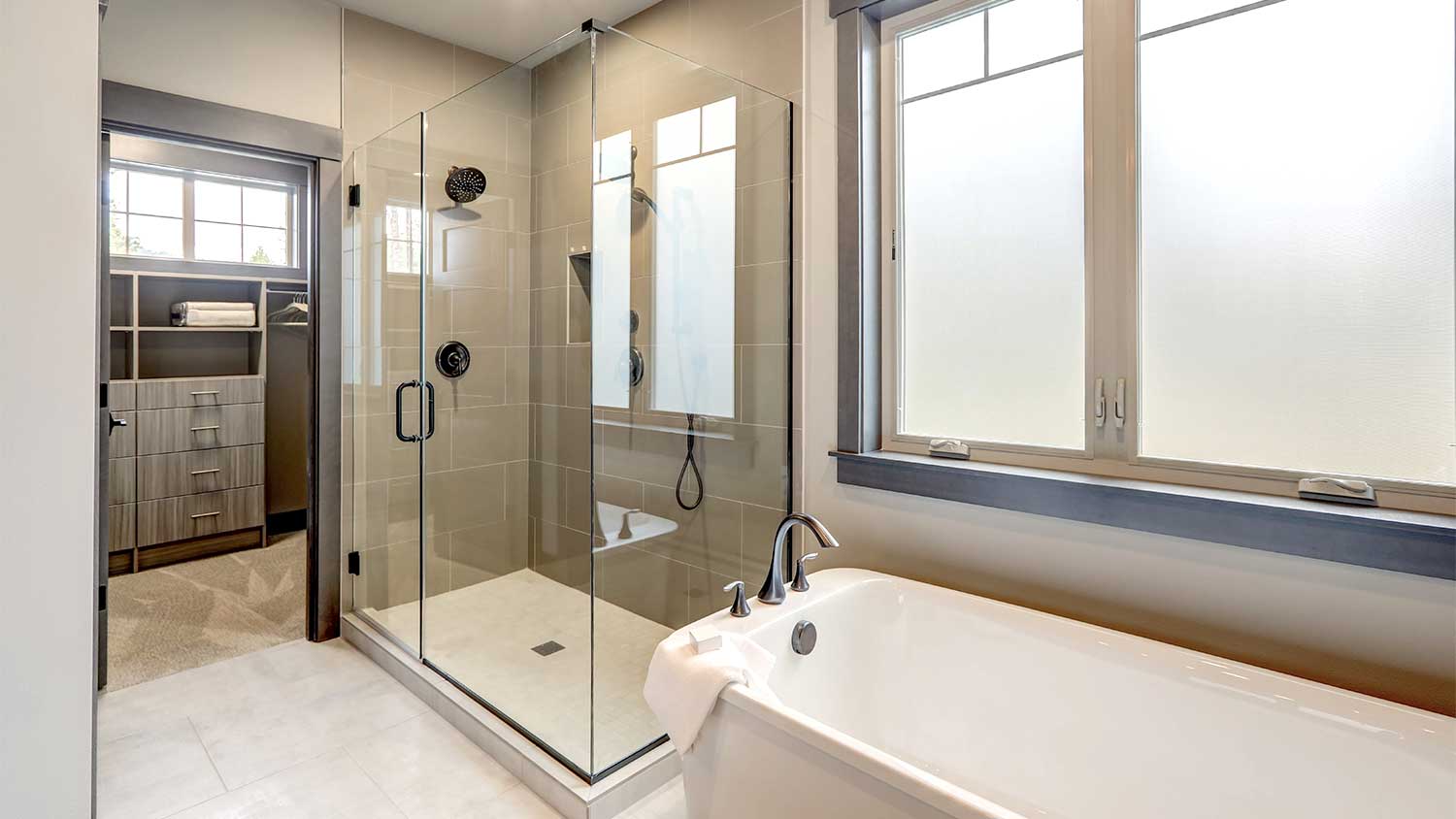14 Home Renovation Tips for a Stress-Free Project
Keep calm and carry on with your renovation


Renovating a home is no small undertaking. Without the right preparation, home improvement projects can wreak havoc on your stress levels. But planning for the chaos will make it that much easier to handle. From planning a budget to issues you might not think of until they arrive—like knowing where to go to the bathroom—these home renovation tips leave no stone unturned.
1. Hire the Right People and Get to Know Them
Plumbers, electricians, and contractors are just a few of the must-have people that should be on your list. Even if you’re planning to DIY certain projects, odds are you don’t have the tools and technical know-how to complete the more hazardous work on your own, so take some work off your plate and hire a home remodeling pro near you who will.
Once you’ve picked your pros, get to know them—after all, you’re going to be working together for quite a while. Meet with them to establish a plan. With all their experience, no one is better to offer organizational guidance. What’s more, they’ll be able to give you an idea of what you can expect to spend, how long work will take, and when and how to get the right permits and approval so everything is done on time. Plus, you don’t have to figure out how to do a home renovation all by yourself.
"Do your research before diving into a remodling project. Reach out to as many different types of people as you can, from contractors to remodeling companies, to be as informed as possible on all the modern remodeling options available to you. "
— Traci Snyder, Vice President of Marketing, People and Technology, Improveit Home Remodeling
2. Pick the Right Season for Your Project
Try to pick a season for your home renovation when the weather will be temperate and relatively easy to work in—that means little to no rain or snow, moderate temperatures, and long working days. Your best bet is fall or spring, but keep in mind that these are busy seasons for contractors and the like, so book them well in advance to secure a spot on their calendar.
3. Consider Renting a Storage Unit
Before demolishing a room, you’re going to have to clear out all of your belongings. Instead of transferring several items to other areas of your house—inevitably causing clutter and confusion—look into booking a storage unit for the length of your build. That’ll ensure you’re not tripping over furniture that shouldn’t be there, or, worse, accidentally damaging precious heirlooms.
4. Apply for and Obtain Permits
Certain permits are required whenever you work with electricity or gas lines or when you change exterior home elements like roofing and siding. Consult a pro to find out what permits you’ll need to accomplish certain tasks, as well as who to contact and when. In most cases, though, your contractor will handle this part for you as part of their service.
5. Set a Timeline and Stick to It

Setting milestones and an end date for your project will give you a finish line to strive for—and a light at the end of the tunnel when the goings get tough. Let’s say your project as a whole will take six months—make a goal to complete one, two, or three objectives each month. You’ll also want to schedule payments with your pro ahead of time so you can budget for them as needed. Finally, build in some wiggle room because odds are, some things will take longer than planned. That way, if you do end up wrapping up everything on time, you’ll actually finish earlier than foreseen.
6. Make a Thorough To-Do List
Having a detailed home renovation checklist is the best way to ensure your deadline is met and stay on track from day to day. You’ll want to make daily, weekly, and monthly to-dos, with flexibility for last-minute changes just in case, as well as a list of the necessary tools and materials.
7. Prepare to Go Over Budget
Additional expenses are a definite possibility with a project as wide-spanning as a home renovation, which is why you should plan to set your budget a little bit higher than the number you might have originally had in mind. Planning to spend an extra 10% to 20% on home renovation costs is a good way to ensure you always stay in the green. And remember that there are plenty of ways to remodel a house on a budget, so that setting aside a little more doesn’t necessarily mean you’ll be breaking the bank.
8. Maintain a Normal Routine
Just because your home is in a state of upheaval doesn’t mean that you should be. Sure, it’s not as straightforward to stick to your usual self-care routine if, say, the water in the bathroom isn’t working. However, it’s important to maintain a sense of normalcy to keep your cool and complete the home renovation successfully.
9. Clean Up Regularly

When it comes to home renovations, there are obviously things you won’t be able to clean up right away. However, it’s still a good idea to downsize and declutter as much as possible at the end of each workday. This will give you a view of what work remains, and help you start the next day off on a better, more calm foot.
10. Plan Ahead for Utility Interruptions
In many home renovations, there may come a point where you have to cut the water, electricity, gas, or all of the above. Luckily, there are a few ways to prepare for this eventuality. For starters, fill a bathtub with water if or when the water line gets cut, then use a bucket to fill and flush your toilet as needed. Similarly, stock up on pre-made food for when the gas or electricity line is off but you still need to eat. Or consider booking alternate lodgings if the power is going to be out for more than a day.
11. Figure Out Where You’re Going to Eat, Sleep, and Bathe
Living is hard to do in a house that’s in the middle of renovations, but you can make it easier with a little planning. Odds are not everything will be under construction at the same time, and you should plan for it to be that way. Maybe your bedroom is next up on the list, but your living room is already done—prepare to bunk down there for a little while. Bathroom renovation on deck? See if a nearby friend or family member will let you shower at their home in the meantime.
12. Keep Your Pets and Kids Safe

An active construction site isn’t exactly a safe place for your furry friends or little ones—so see if a babysitter or pet hotel can take them off your hands until the workday is done. When it is, set up a safe zone for them in the house, where they won’t be harmed by stray nails, loose wires, hazardous fumes, or debris from demolition.
13. Celebrate the Little Things

Even if your project isn’t completely done, don’t wait to recognize the achievements you’ve already made. For instance, when the kitchen remodel is finished, use the opportunity to make a celebratory meal for you and all who worked on it.
14. Hire Someone to Clean Up For You at the End
When all is said and done, the last thing you want to do is more work, but odds are there’s quite a mess that needs to be cleaned up. If you didn’t tap into your extra emergency budget, use a little bit of it now to hire a cleaning service to do that last little bit of work so you can enjoy what you’ve already done.





- Bathroom Remodeling
- Kitchen Remodeling
- Shower Installation
- Stair Installers
- Bathtub Installation
- Shower Door Installers
- Kitchen Design
- Bathroom Design Companies
- Storm Shelter Builders
- Pre-Made Cabinets
- Kitchen Refacing
- Bathtub Replacement
- Ceiling Tile Installation
- Suspended Ceiling Companies
- Residential Designers
- Stair Builders
- Remodel Designers
- Shower Enclosures
- Home Renovations
- Kitchen Renovations
- Garage Remodeling
- Grab Bar Installation
- Walk-In Tub Installers
- Tub to Shower Conversion
- Balcony Contractors
- 9 Things That Will Slow Down Your Home Renovation
- Which Home Projects To Put On Your To-Do List First After Moving
- 6 Tips to Prepare for a Successful Home Remodel
- How to Build a House: Your Complete Guide to the Home-Building Process
- 45-Point Moving Cross-Country Checklist
- 6 Home Projects You Should Complete Before You Move In
- The Ultimate Moving Out Checklist: 8 Week Countdown
- Learn How to Clean Your House (and Maybe Even Have Fun Doing It) With These 27 Tips
- Top Tips on Hiring the Perfect General Contractor for Your Next Project
- 6 Real Estate Green Flags That You Should Buy That House










